Why Crypto Nomads Are Quietly Flocking to Tbilisi
The Georgian capital is quietly building its rep as a sanctuary for digital nomads. From zero capital gains taxes to buzzing Web3 cafes, the crypto lifestyle of Tbilisi hits different.
On this page
- Why Web3 Talent Is Migrating to Tbilisi
- Tbilisi: A Crypto-Nomad’s Lifestyle Dream Come True
- A Tax Haven for Digital Assets
- Crypto in Tbilisi: Everyday and Everywhere
- No Red Tape, Just Crypto
- Tbilisi’s Web3 Scene Is Built IRL
- Where to Live in Tbilisi: A Guide for Crypto Nomads
- Tbilisi’s Elite Neighborhoods
- Affordable Living in Tbilisi
- Tbilisi for Web3 Nomads: Attractions and Costs
- Living on Crypto in Tbilisi? Here’s How
Here's what makes it such an appealing hub for life and work in the blockchain era.
Why Web3 Talent Is Migrating to Tbilisi
One of Tbilisi’s top advantages for remote professionals is its low cost of living—the most affordable in the Caucasus and Eastern Europe. While locals may have mixed views, for Web3 freelancers and crypto entrepreneurs, the value is unmatched.
Beyond affordability, the climate and geography are hard to beat. The city sits close to ski resorts and Black Sea beaches, offering an all-season lifestyle—snowboarding in Gudauri, sunbathing in Batumi, all within a few hours’ reach.
Tbilisi also boasts fast, reliable internet, with major providers like Geocell and Magticom offering unlimited data for a fraction of what’s standard in the West. It’s all part of the growing appeal behind the crypto lifestyle of Tbilisi.
A desk by the window, mountains on the horizon—what more could a freelancer want?
Yet, it’s not just the postcard views. The real charm of the crypto lifestyle of Tbilisi lies in the little things that make everyday work smoother, freer, better.
Tbilisi: A Crypto-Nomad’s Lifestyle Dream Come True
Tbilisi offers an array of benefits that make it an appealing base for those living the crypto lifestyle. Here are some of the top advantages.
A Tax Haven for Digital Assets
In Georgia, cryptocurrency trading is tax-exempt for individuals, which sets it apart from many other countries. As per a 2019 decision by the Ministry of Finance, cryptocurrencies are not considered “Georgian-sourced income,” meaning they are exempt from both income tax and VAT when exchanged. This policy makes Tbilisi a prime location for individuals looking to manage their crypto holdings with minimal taxation.
Notably, the Georgian government does not impose bans on cryptocurrency. While the National Bank does not recognize crypto as legal tender, it allows individuals and businesses to freely trade and profit from digital currencies.
Georgia’s territorial tax system means you pay taxes only on income generated inside the country. Combine that with crypto-friendly regulations, and Tbilisi becomes an ideal environment for anyone pursuing the crypto lifestyle of Tbilisi.
Visa-free stays for citizens of 95 countries (up to 364 days) make long-term relocation seamless. No wonder Georgia has become home to hundreds of thousands of Web3 expats. The “Remotely from Georgia” program further solidifies Tbilisi as a top destination for Web3 freelancers and digital nomads.
Want to understand how Georgia handles crypto taxes? You’ll find all the answers in our article: “Crypto Regulations in Georgia.” If you're thinking of embracing Tbilisi, it’s the perfect place to start.
Crypto in Tbilisi: Everyday and Everywhere
In Georgia’s capital, cryptocurrency has become part of everyday transactions. Over 200 businesses—including cafés, retailers, and hotels like Radisson—accept digital payments via Binance Pay, Whitepay, or CityPay, reports Cointelegraph.
Crypto ATMs are installed across all major shopping centers in Tbilisi, as well as in various neighborhoods. While they don’t offer cash withdrawals, users can instantly purchase Bitcoin or Ethereum with ease.
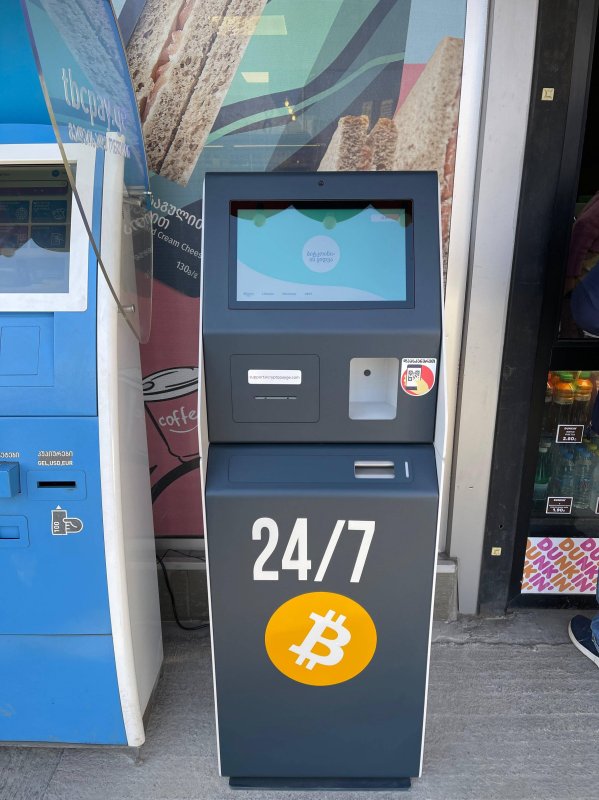
No Red Tape, Just Crypto
Launching a crypto startup in Tbilisi? Piece of cake. Free Industrial Zones in Tbilisi, Batumi, and Poti let you skip the taxes—no profit tax, no dividend tax, no VAT on exports.
Setup takes two days, tops. €150 covers everything, from your legal address to your bank account.
And miners? They love it here. Hydro power runs cheap—just 9 to 11 cents a kWh. In Svaneti, it used to be totally free. No wonder that Tbilisi keeps drawing in the Web3 crowd.
Bitfury, one of the largest Bitcoin mining companies globally, has already invested more than $30 million into its Georgian operations. Their presence is setting the tone, drawing in a wave of smaller miners inspired by their success.
This momentum is shaping the city, transforming it into a mining and blockchain hotspot.
To explore the deeper undercurrents of crypto mining in Georgia, take a closer look at our latest exposé: “How Russia is Building a Shadow Crypto Mining Empire”
Tbilisi’s Web3 Scene Is Built IRL
The crypto lifestyle of Tbilisi thrives on human connection. From curated panels in tech hubs to casual hangouts over craft beer, the city is a meeting ground for those building the decentralized internet.
Zu Village Georgia is just one example—drawing in crowds of Web3 pioneers eager to turn visions into protocols, and whiteboard sketches into code.
Geopolitical shifts: «Tether and Georgia Government Collaborate to Drive Blockchain»

Where to Live in Tbilisi: A Guide for Crypto Nomads
Tbilisi offers a full range of housing—from high-end neighborhoods where expats enjoy mountain views, to affordable zones perfect for remote workers and freelancers.
Best of all? Many landlords now accept crypto payments, making the crypto lifestyle of Tbilisi seamless from check-in to checkout.
Tbilisi’s Elite Neighborhoods
Vake
Think of Vake as Tbilisi’s version of a leafy European village—with coworking lofts on one side, boutique-lined streets on the other, and fountains in the parks to top it off. Back in the day, it was where musicians and painters lived. These days, they share the district with crypto freelancers who can afford a modern studio for around $500. A family-sized place with a separate bedroom? That’ll be about 25% more. Vake isn’t just stylish—it’s also secure. That’s why expats with means pick it first: you can stroll around safely, even at midnight.
Mtatsminda
Set high on a hill, Mtatsminda delivers panoramic views—and rental prices to match:
- Two-bedroom apartments with a city vista start at $750,
- Cozy hillside villas begin around $1,000/month.
It’s a serene enclave for those who blend affluence with influence: crypto entrepreneurs, high-ranking officials, and IT moguls. While it’s not the go-to for newcomers, Mtatsminda is where the established elite of Tbilisi’s crypto lifestyle quietly thrive.
Sololaki (Old Tbilisi)
Picture this: narrow cobbled streets, storybook houses, and those Insta-famous wooden balconies dangling over quiet courtyards—welcome to Sololaki, Old Tbilisi’s most photogenic corner. Staying here feels like starring in your own Georgian fairytale—until the no-heating reality hits.
Let’s be real: long-term comfort isn’t Sololaki’s strong suit. Locals rent these places by the night, and that’s great for tourists. But if you’re a digital nomad needing a base, this might not cut it. Still, if waking up next to the Botanical Garden sounds like your vibe and $40–50 a night doesn’t scare you off, Sololaki’s got the aesthetic—and the attitude.
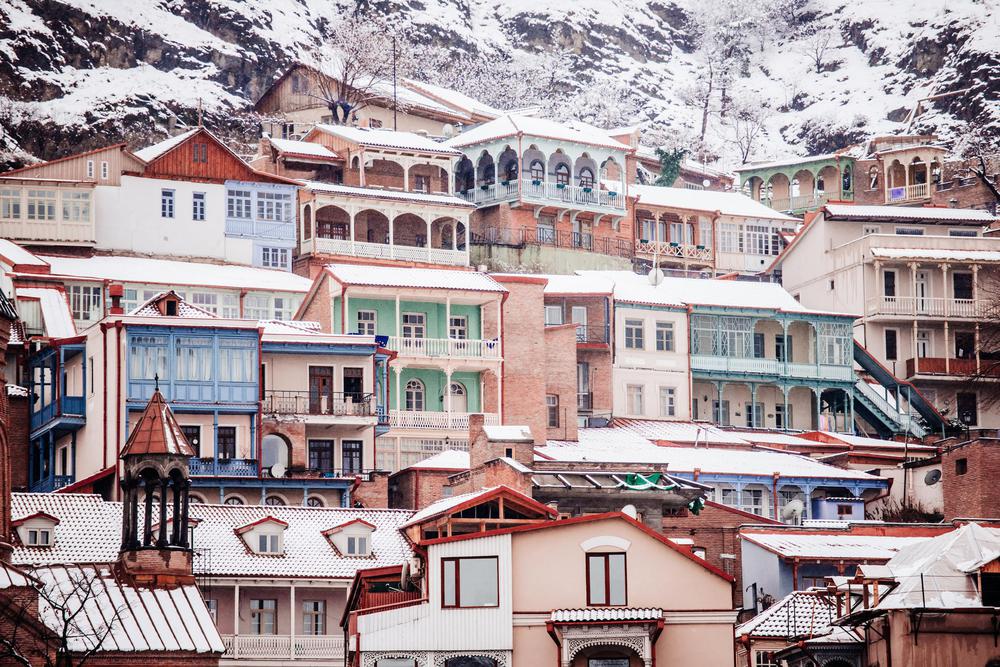
Affordable Living in Tbilisi
Saburtalo District. This is where Tbilisi’s hustle meets budget-friendly living. It’s the go-to for students, young pros, and crypto freelancers who want a practical home base without spending a fortune—expect to pay around $300–$400 for a one-bedroom. This part of town is packed with new buildings, big-name supermarkets, metro access, schools, and kindergartens. Sure, it doesn’t have Old Town’s vintage vibe, but it does have Lisi Lake just a walk away—perfect for morning jogs or lazy beach days. With its nonstop pace, Saburtalo ranks as one of the city’s liveliest business hubs.
Marjanishvili is a historic district in Tbilisi known for its Eastern ambiance and cultural inclusivity. Renting an apartment costs between $450 and $500. The area is close to a metro station and has many Arab restaurants, making it a comfortable and familiar choice for visitors from Eastern countries. It’s also the only neighborhood where halal food is easy to find, and where families—including those practicing polygamy—can settle without raising eyebrows. Marjanishvili offers a rare mix of affordability, convenience, and cultural acceptance.
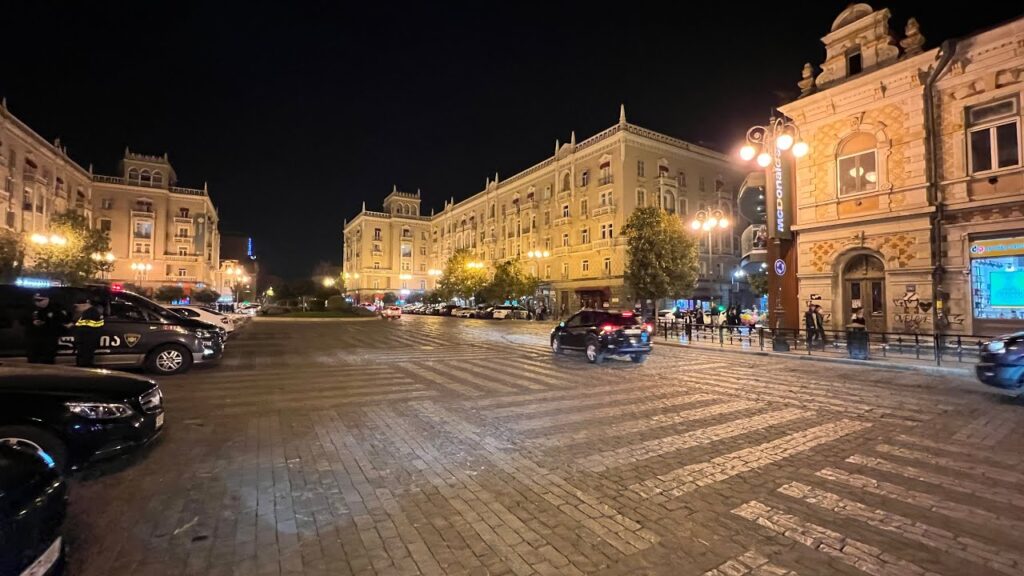
On a tight budget but still want a place in Tbilisi? Head out to Gladni, Didube, or Isani—where two-bedroom apartments go for just $300 a month. A bit outside the center, but hey, the savings are worth it.
And the best part? Crypto runs deep here. Most younger Georgians are cool with BTC or stablecoins and can take rent via crypto wallets. Worst case? Swap your crypto for fiat at nearby exchanges—fast, easy, and with just a 1–1.5% cut.
Tbilisi for Web3 Nomads: Attractions and Costs
Tbilisi strikes the perfect balance between digital freedom and budget-conscious living—making it a top pick for Web3 nomads. Here's what to explore without draining your wallet:
- Narikala Fortress: A historic hilltop site with breathtaking views—free to visit. Cable car access costs 2.5 GEL ($0.90).
- Abanotubani Sulfur Baths: Public bath entry is 5–10 GEL ($1.85–$3.70); private rooms start at 70 GEL ($26).
- Bridge of Peace: This iconic modern structure offers a free, scenic entry into Tbilisi’s Old Town.
- Mtatsminda Park: Free admission, with a round-trip funicular ride for 10 GEL ($3.70). Kids’ rides begin at 2 GEL ($0.75). The Ferris wheel delivers panoramic views not to be missed.
- Dezertir Bazaar: No entrance fee, and local street food begins at just 1 GEL ($0.35). It’s the best place to buy spices, honey, cheese, and fruits in one vibrant stop.
Tbilisi’s food scene is wild. It feels like you could try something new every day for weeks and still miss out on half the menu.
Budget joints keep it real with the Georgian staples. Hit up a neighborhood dukan and grab a plate of khinkali—1–2 GEL each ($0.35–$0.75), but be warned: five’s the minimum and they’re no joke to finish. Khachapuri goes for 5–10 GEL ($1.85–$3.70), all golden crust and gooey cheese. Add a beer and a few extras, and you’re full for 15–20 GEL ($5.50–$7.40).
Dine at well-loved restaurants like Salobie Bia or Tiflis, and a classic dish like shkmeruli will cost you 20–30 GEL. Since it’s an entire chicken, plan to share. A glass of local wine goes for about $2, so dinner totals around 30–50 GEL ($11–$18.50) per person.
Prefer upscale dining? At Rooms Hotel or Keto and Kote, expect to pay up to $80 per person for a full dinner with wine and dessert.
Most high-end Tbilisi restaurants accept cryptocurrency through CityPay or QR-code scanning.
Want to know how Georgia’s ancient winemaking traditions are now protected by blockchain? Our story “Georgia’s National Wine Agency is using the Cardano blockchain to ensure the quality and control of the logistics” explores how the Web3-tech is helping preserve the essence of local wine—from vineyard to glass.
Living on Crypto in Tbilisi? Here’s How
- Flex your crypto debit card—yes, it works almost everywhere from corner shops to cool cafés.
- Hit up crypto ATMs at metro stops, gas stations, and big stores when you need quick GEL.
- Get set up with Magticom or Geocell—fast 4G is non-negotiable.
- Want to find your tribe? Check out crypto meetups at Stamba Hotel or the buzzing Fabrika space with its coworking zones, hostels, and laid-back vibe.
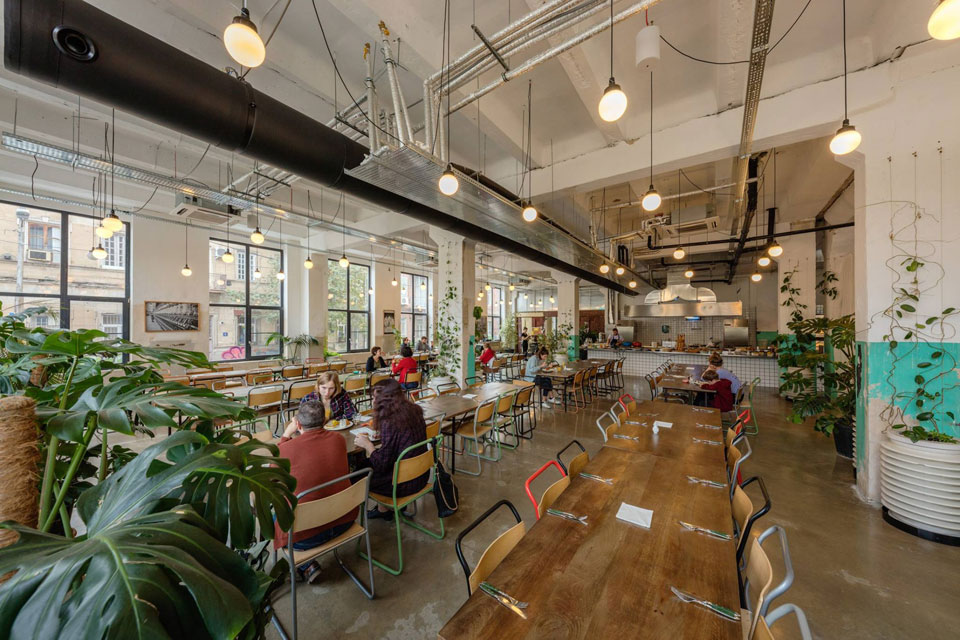
It’s a city where technology and texture intertwine, and the crypto lifestyle of Tbilisi feels less like a trend and more like a philosophy.
With low costs, a fiercely expressive culture, and the spirit of innovation in the air, this place speaks fluently to crypto enthusiasts seeking a space to live boldly, build freely, and taste life in full.
The content on The Coinomist is for informational purposes only and should not be interpreted as financial advice. While we strive to provide accurate and up-to-date information, we do not guarantee the accuracy, completeness, or reliability of any content. Neither we accept liability for any errors or omissions in the information provided or for any financial losses incurred as a result of relying on this information. Actions based on this content are at your own risk. Always do your own research and consult a professional. See our Terms, Privacy Policy, and Disclaimers for more details.

























